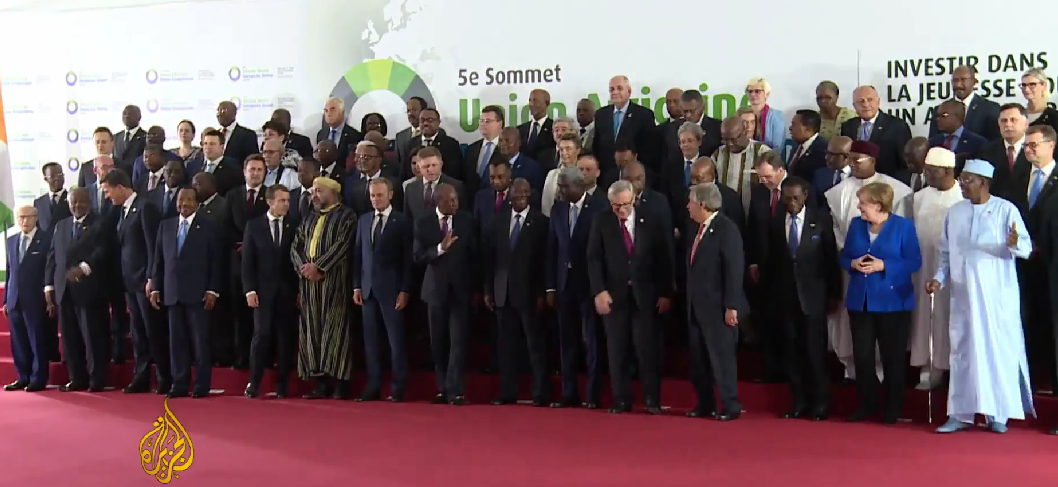On 28 November, the UN Security Council held a meeting to discuss the reports of migrant slave auctions in Libya.
The UN’s International Organisation for Migration (IOM) called for the Government of National Accord (GNA) to shut down 30 detention centres holding 15,000 migrants, who would then be repatriated to their own countries.
The meeting was called for by France, with calls to add migrant traffickers to a UN sanctions list that includes a travel ban and assets freeze.
On 30 November, an African Union (AU) – European Union (EU) summit in Ivory Coast also focused heavily on the issue of migrants in Libya.
French president Emmanuel Macron announced that the EU and AU will launch “concrete military and policing action” to rescue African migrants in Libya and arrest human traffickers.
Macron said that the leaders of Libya, France, Germany, Chad, Niger and other countries, along with the UN, had, “decided on an extreme emergency operation to evacuate from Libya those who want to be” and that evacuations of 15,000 people would starts in the coming days or weeks.
GNA Prime Minister Fayez al-Serraj has reportedly given permission for IOM to be given access to detention centres to allow for the mass deportation of migrants. Under the plan, the burden of responsibility will apparently fall on the origin countries which will have to come to a holding centre in Tripoli and take back their citizens.
Migrants without documentation would be held until their case is resolved.
European Commission president Jean-Claude Juncker said that the EU had developed “an external investment plan for Africa” to stump up €44 billion (£39bn) by 2020, notably in growth sectors like renewable energy. Juncker said that the way to tackle mass migration was to stimulate massive economic growth in Africa.
Various Libyan authorities have said that they are investigating the allegations of slave markets and have acknowledged that migrants face difficult conditions and abuses in Libya.
However, some officials have questioned the authenticity of the CNN report that sparked this furor and have said that if such incidents have happened, they are isolated incidents and not a result of systemic violations.
There is a feeling among many Libyans that while there are undoubtedly problems in how migrants are treated, many Libyans face similar problems and that by focusing solely on migrants, the international community is ignoring the fact that migrant abuses are a symptom of Libya’s wider governance challenges.
Furthermore, while Libya does have problems with racism, most Libyans have been just as shocked as everyone else at the idea that slavery might be taking place in the country.
The EU-AU plan is being touted as a radical new solution, but IOM has been repatriating migrants for several years, this would just increase the rate at which it takes place. Furthermore, it is difficult to see how logistically and practically this plan will work as Serraj does not control who can access detention centres, as he does not control most of the militias involved.
Putting the onus on African countries to process and carry out repatriation is also likely to be another area for bottlenecks, while there are big questions over the legality and ethics of such an approach as this stop-gap solution does nothing to help those who cannot return to their countries and are eligible for asylum and support.
_________________




